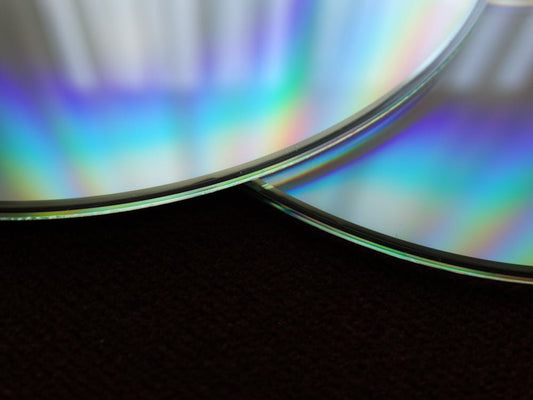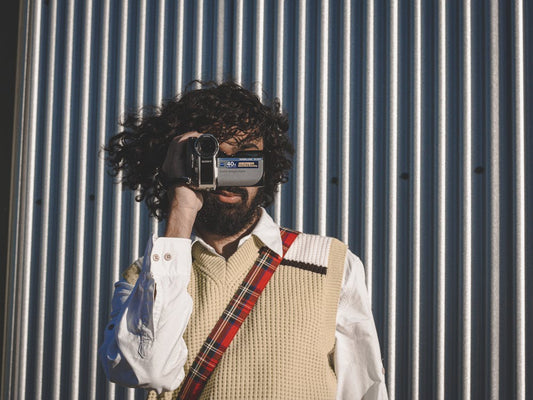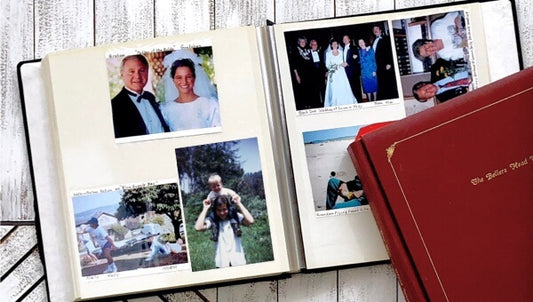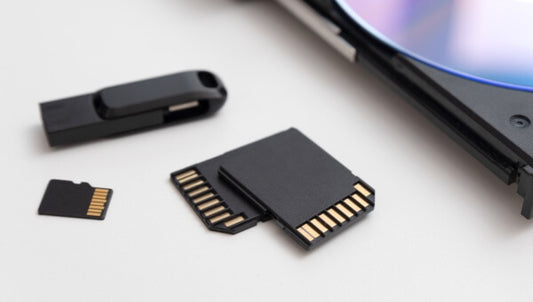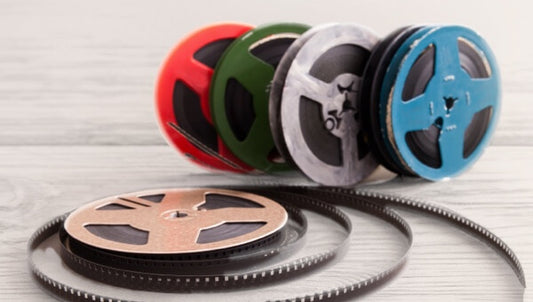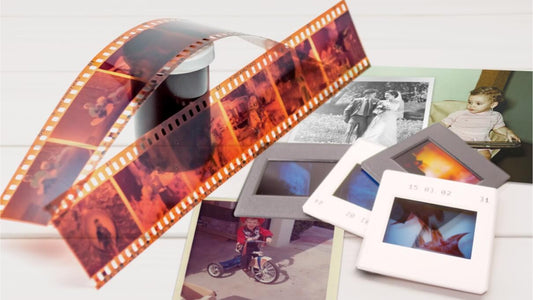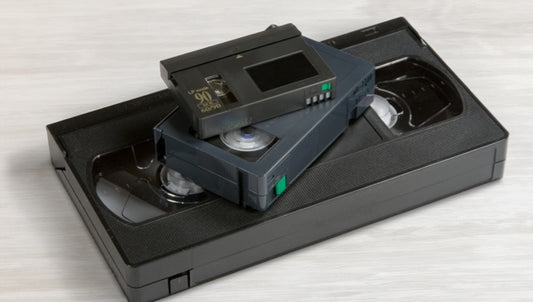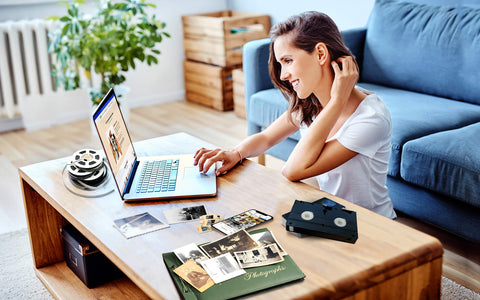VHS tapes can contain precious memories like vacations, holidays, birthdays, graduations, and so much more. Unfortunately, they don’t last forever, and many people don’t even have a VHS VCR to view them anymore. That’s why it’s important to digitize them and one of the best ways to do that is to convert VHS to USB.
Capture is a leading expert in videotape digitization with over 20 years of experience helping families preserve VHS tapes as digital copies including USB versions. That’s why we put together this guide to ensure you get the best results by turning VHS tapes into USB copies for easy sharing.
Keep reading to learn about what VHS to USB involves, your options for DIY conversion and the essential hardware you’ll need, professional alternatives like Capture, and how to choose the right method for your specific needs.
Jump to:
- Understanding VHS to USB Conversion
- DIY VHS to USB Conversion Options
- Professional VHS to USB Services
- Preserving Your Digital Memories
- Choosing the Right Method for You
Understanding VHS to USB Conversion
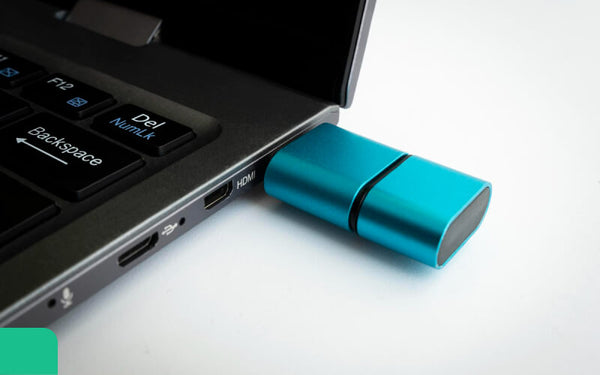
VHS to USB conversion simply means to read the home movie data off the VHS tape and put it as a digital copy onto a USB storage device. To do this, you need a way to read the VHS tape, turn it into digital format, and store it on your preferred USB device. Before we look at how you can do that, what is the point?
Digitizing home movies in this way offers a variety of advantages. First of all, you might want to consider, how long do VHS tapes last? Depending on the storage condition, videotapes can start to break down and lose footage after only 10 to 20 years. Digital files, on the other hand, will last forever in the cloud, on a hard drive, or on a USB flash drive.
Additionally, a digital copy of your home videos will also be easier to share with friends and family. You can send it instantly over social media and email instead of having to mail bulky VHS tapes. You can even perform video editing or video restoration on old tapes once you have them in digital format.
So, how can you perform VHS video transfer to USB for digital archiving? Let’s look.
DIY VHS to USB Conversion Options
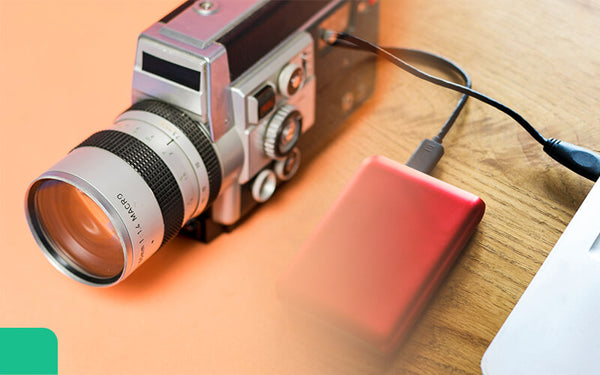
There are a few different options for converting old home movie video formats like VHS as well as VHS-C, S-VHS, Video8, Digital 8, MiniDV, and Sony Betamax. However, it all starts with the ability to read the analog video files to begin with.
That means for DIY VHS conversion you will need either a VCR or a camcorder that plays them. You can find VCRs for sale online or at pawn shops and antique stores, but if you’re set on converting yourself, you’ll need to have one.
Additionally, you’ll need a way to take the data off the VCR or camcorder and turn it into digital format. This can be done using a video capture card or VHS to digital converter. These devices use RCA cables to plug into your camcorder or VHS tape and turn it into digital format. Some are standalone USB ports while others take an extra step to playback onto a flash drive.
Some options we recommend include DIGITNOW Video Converter, Elgato Video Capture Device for Mac or Windows, and VIDBOX USB 2.0. However, make sure you compare their features because some will be higher quality, easier to use, and better suited for specific USB recording. You can find these options online on Amazon or other websites, but they might be hard to find locally.
Another alternative is to use a VHS to DVD converter. This can be something like the Roxio Easy VHS to DVD converter or a VHS VCR and DVD combo player. Then, when you have a DVD, you can put it into your computer or external DVD player to transfer the VHS video to USB. While this is more time-consuming, it might be a good option if you also want DVD copies.
Professional VHS to USB Services
While DIY analog to digital transfer can work great for some, it can be very time consuming and if you don’t know what you’re doing you could even risk damaging your precious vintage camcorder memories.
Because of that, you might want to consider professional transfer services. Not only will this save you a lot of time, but there are other distinct advantages. First, they use professional equipment to ensure the best possible quality. That means you preserve family memories exactly as you remember them.
Professional services will also accept a wide variety of formats. This means that they can accept NTSC and PAL format VHS tapes as well as VHS-C, S-VHS, and S-VHS-C. With DIY VHS digitization, you’d need a separate playback or video recording device for each option.
Not only that, but a VHS to digital service can also preserve Super 8 film reels, physical photographs, other videotapes, and so much more, which means you can convert all your memories at the same time!
Just make sure you choose the best company to digitize home movies. We might be biased, but we believe the best company is Capture.
We offer a 100% satisfaction guarantee, and our top-of-the-line security and monitoring system tracks your precious memories at every step of the process to ensure they are never lost or damaged. Plus, we get your original analog memories and USB copies back to you in less than 30 days!
Preserving Your Digital Memories
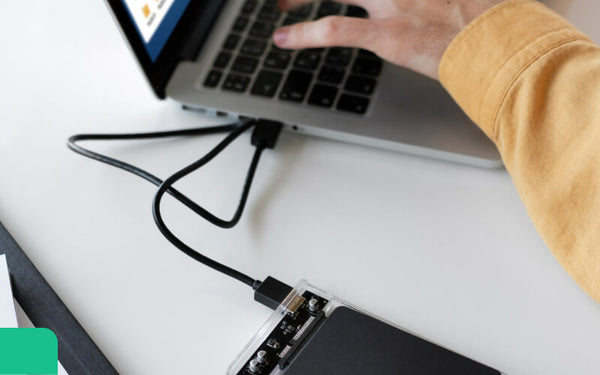
Now that you know all your VHS to USB options, it’s important to cover some of the best VHS tape preservation tips to help you get the best quality results.
If you go the DIY route, the digital conversion will occur in real time, which means you’ll need to set aside the length of the video type while it converts. However, you can watch home movies during the process, which is always great.
To get the best results, make sure you use a high-quality adapter, RCA cable, or HDMI outputs. It might not seem like it makes a difference, but a clear connection can reduce white noise and static. The same goes for a high-quality video capture card.
If your VHS tapes are damaged, you might be able to do some VHS tape repair on your own to get better results. That being said, if you choose Capture then we include case replacement and minor videotape repair with each order.
Finally, while you certainly want to store your VHS tapes on a USB flash drive, consider also keeping a backup version on the cloud. This will ensure that you still have the memories even if the USB becomes damaged or lost.
Choosing the Right Method for You
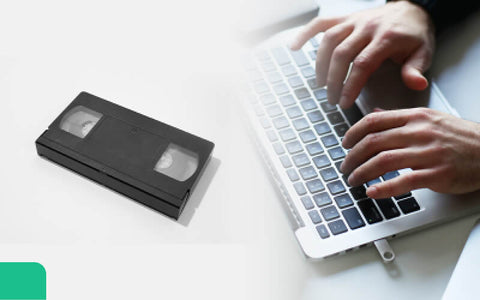
So, which option is best for you? Well, if you have the time and want to watch your home movies anyway, DIY video conversion might be a good choice. It might not be a viable option if you have dozens of VHS tapes or multiple formats though.
However, you also need to make sure your VHS tapes aren’t damaged and that you have the money to get the best video transfer software and converter. Still, for tech-savvy users, it can be a fun process that can help you create a DIY Christmas gift for Mom or a birthday present for Dad!
A professional transfer service is great for digitizing all your memories at once and turning them into the highest possible quality digital and USB formats. To put it simply, it’s faster, higher quality, and more protective of your memories as long as you choose a reputable brand.
The main downside is that it will likely be a little more expensive, particularly for larger orders, but that’s a small price to pay to preserve precious memories as premium digital video for future generations to enjoy!
Conclusion
There are two primary options for converting VHS to USB: DIY and a professional service. Both offer their own pros and cons, which you’ll need to weigh to determine which fits your needs the best. Either way, you’ll have a USB version of your favorite memories that you can keep forever, share with others, and store without needing tons of space.
If you decide on a professional service, Capture offers a 100% satisfaction guarantee, USB and DVD copies, and less than 30-day delivery. Click here to start your VHS to USB order today!


